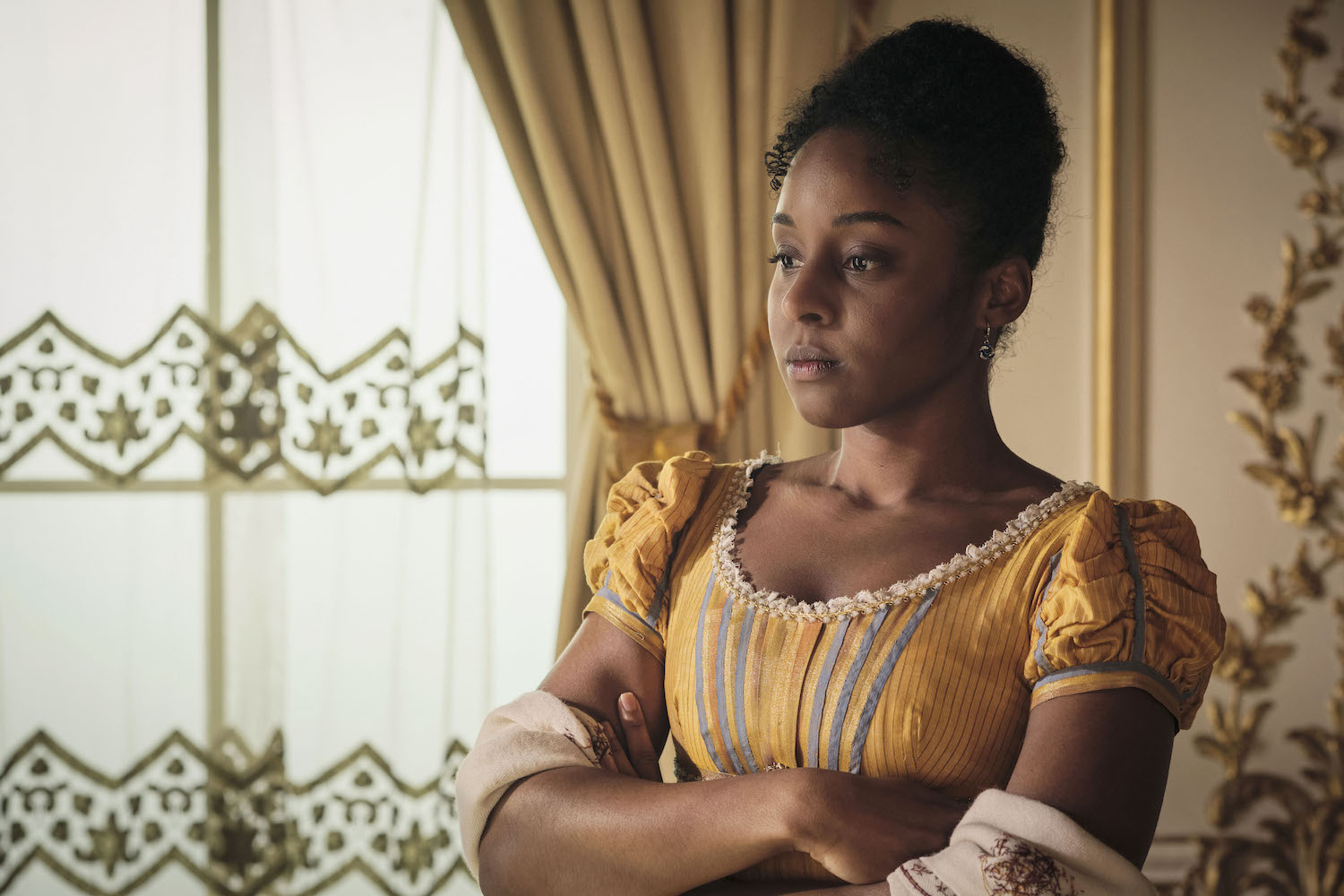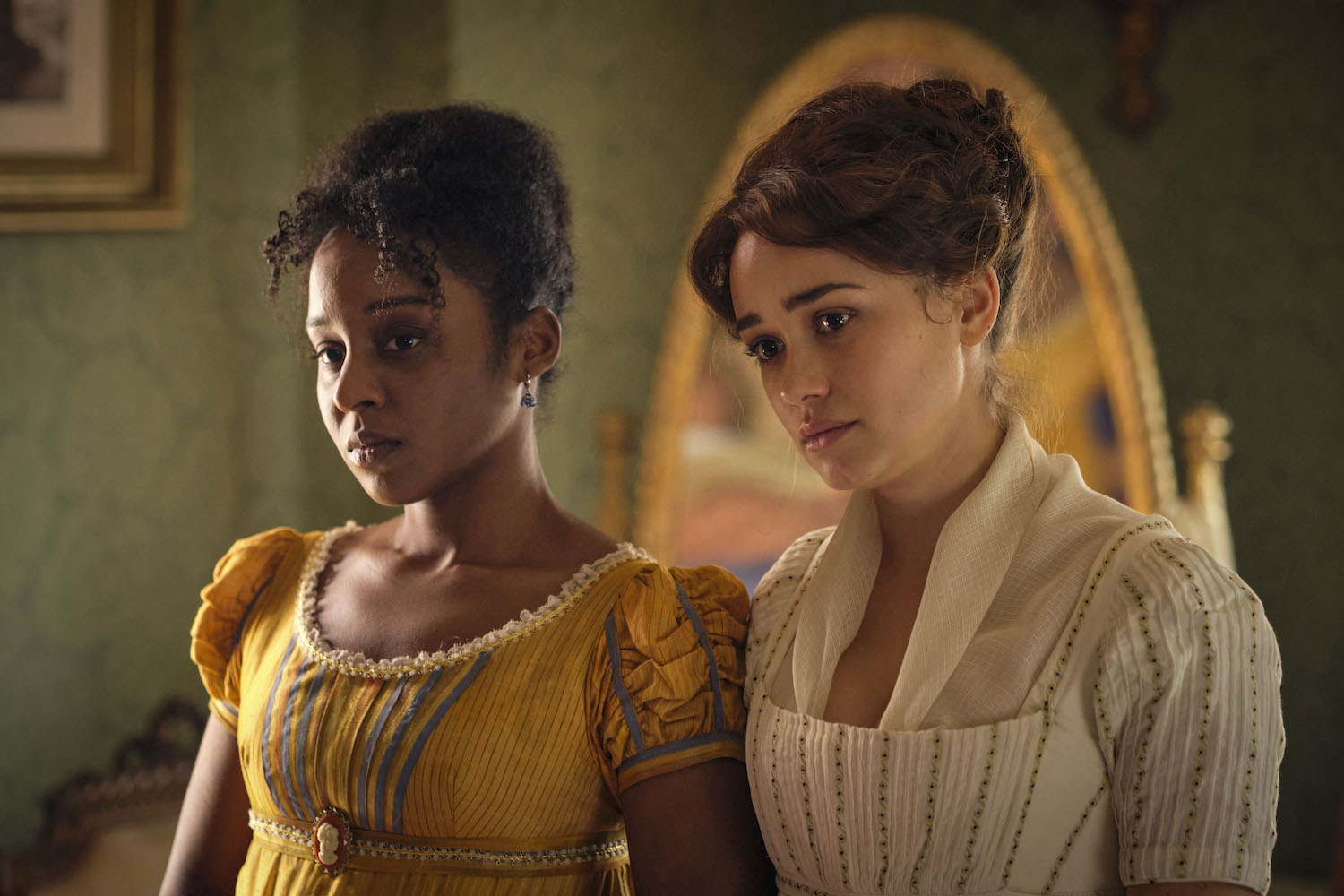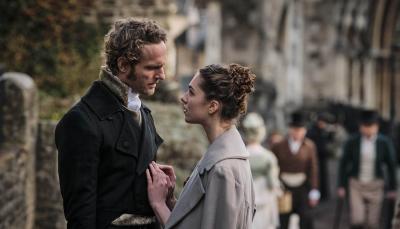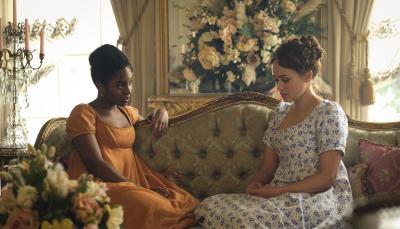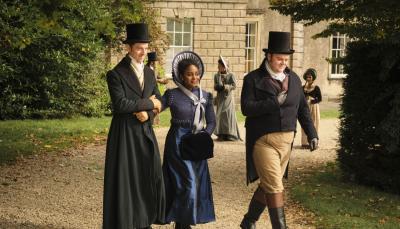'Sanditon's' Series Finale Is Full of Happy Endings, But Very Little Heart
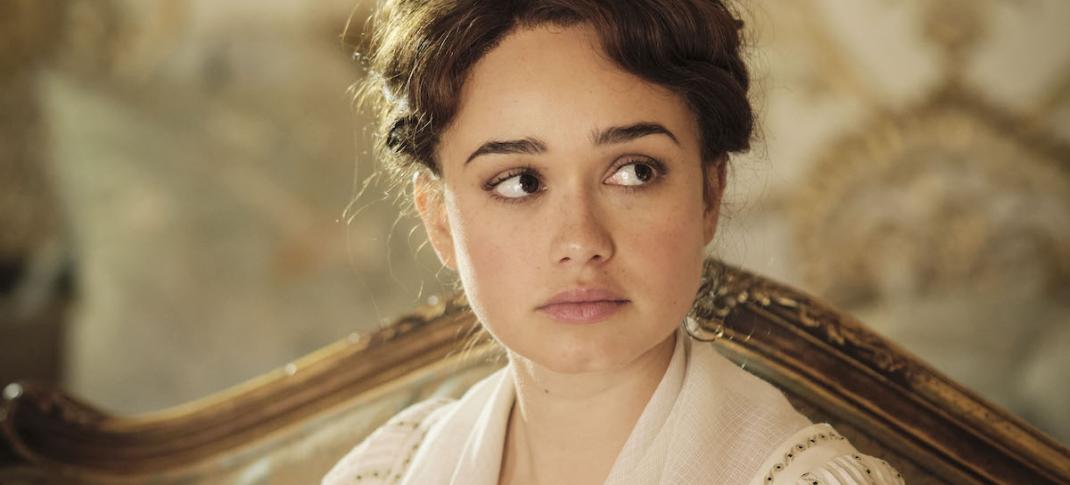
Rose Williams in "Sanditon" Season 3
(Photo: Courtesy of Joss Barratt)
For the second time in its history, it is time to say goodbye to Sanditon. The Little Period Drama That Could survived cancellation, significant cast changes, and behind-the-scenes shifts and ultimately managed to run for three seasons. It is a testament to the power of viewer enthusiasm and a dedicated online campaign that the show got a proper series finale. (It's pretty incredible, honestly.) No matter how anyone feels about how the series wraps up, it's still a better ending than one that leaves Charlotte Heywood forever crying in a carriage on the side of the road. All that said, I'm not entirely sure this is the finale we were all hoping for.
The thing is, the Sanditon ending isn't bad, per se. It ostensibly gives us precisely what we want — no one is unceremoniously dumped, tears are only of joy, and every possible plot thread is tied up in the neatest of bows. But, somehow, despite the abundance of happy endings, the problem is the Sanditon finale is almost entirely without heart. Little of the supposedly high-stakes drama — Mary's near-death illness, Charlotte's decision to leave for Ireland, even Lady Denham's decision to leave Mr. Price at the altar — feels like it matters.
It would be one thing if the ending of Sanditon were simply predictable. Obviously, Charlotte and Colbourne will find their way back to one another, Georgiana and Harry Montrose are unlikely to marry, and Lady Denham is never going to be the kind of woman who's going to willingly give up a title and a comfortable lifestyle for any man, whether she genuinely cares about him or not. There are ways to tell stories like this that are satisfying and meaningful, natural endpoints for these characters we've come to care for. But the problem with this finale is it doesn't do any of that, instead choosing to speed down a list of what often feels like pre-determined endings without pausing to think about whether they make sense for where characters are in their various journeys.
Over one (1!) single hour, Georgiana manages to doubt her mother's identity (again!), expose Lady Montrose's bribery attempt, break off her engagement with Harry, and decide — after one (1!) single conversation with Agnes — her future lies with Otis, the man who scammed her in Season 1. Granted, Sanditon's focus on his work to abolish slavery does indicate that he's changed and become a better person. However, as he's been onscreen for five minutes since then, there's not much evidence to back this up, nor has the show hinted Georgiana was still pining for him.
Maybe this wouldn't feel disappointing if Sanditon's producers hadn't insisted Georgiana was a character with an important story to tell and then chose not to do so. Viewers were led to believe her search for her mother would be a big part of her story; she would be allowed more agency over her life and maybe even focus on the fight for abolition in England. (A throwaway line about Georgiana's sugar boycott — which she seemingly stopped supporting! — doesn't count.)
Maybe Sanditon would never know what to do with a character like Georgiana, but the story she did get felt rushed and strange. Her anger at her future mother-in-law's machinations is understandable, but the shift to the mutual decision to end the engagement was just straight-up weird. (This can hardly be the worst thing his mother has ever done!) It's doubtful any of us expected them to go through with it. Still, calling it off without discussing Arthur, Harry's relationship with him, or the deal they struck to make everything work, felt like a huge chunk was missing.
Charlotte and Colbourne get the big swoony period drama reunion they deserve as the show's nominal marquee couple. Granted, they officially get together with precisely six minutes left in the series, and only after suffering through yet another mistaken identity engagement scenario easily resolvable by someone (anyone!) using their words. But you can't have everything. (Or hardly anything, depending on your perspective.)
The Heybourne wedding is lovely — Rose Williams is positively glowing throughout — and Charlotte achieves her ultimate dream of starting a school willing to accept any child that wants an education, regardless of sex or class. There's even an adorable little epilogue where Charlotte reaffirms her feminist bona fides, and we see the two now have a child together. It's a sweet ending, but it would have been better to get some more build-up to it to that it landed a better emotional punch.
(I still don't understand why Colbourne felt the need to reject Charlotte at the end of Season 2 or why Charlotte thought it was so necessary to marry Ralph instead of following her original plan of being a woman on her own. I guess I'll let it go eventually, but I do weep for the version of this episode where the two realize they can be together in its first half. We get to see them talk about... well, literally anything of substance when it comes to their relationship. Wouldn't that have been nice?)
Sanditon's ending feels like a calculated effort to leave everyone happy, partly because it refuses to rock the boat. Mary's sudden near-death illness mysteriously reverses course when Tom decides he should help the poor instead of chasing the profits from building a luxury hotel. Lady Susan is summoned back to the King's side, only to decide, halfway to London, risking royal displeasure is worth it for the chance to be with Samuel Colbourne. (Presumably, she will face no ill consequences for that choice.) Reverend Hankins finally gives his blessing to his sister and Dr. Fuchs.
Edward gets a job — as a clergyman. If nothing else, this should convince viewers the series finale is, on some level, a fever dream. (Sorry to this parish.) Harry and Arthur vow to continue their "special friendship" as Sanditon blissfully decides they will live the confirmed bachelor life together. Lady Denham ditches Mr. Price at the altar because she likes money and status. Mr. Price is surprisingly okay with it, vowing to see her in Sanditon every few months to keep their romance alive. Georgiana marries Otis without ever having an honest conversation with him about it. Even Lady Lydia gets an unexpected happy ending, arranging a secret engagement with a man we never see.
All of this is, on paper, sound, and it's easy to be happy these characters all end the story well. It's certainly nice not to end a season with Charlotte in misery. But is this flurry of Happy Endings by Focus Group genuinely satisfying? Your mileage will almost certainly vary — but I was hoping for something more.

